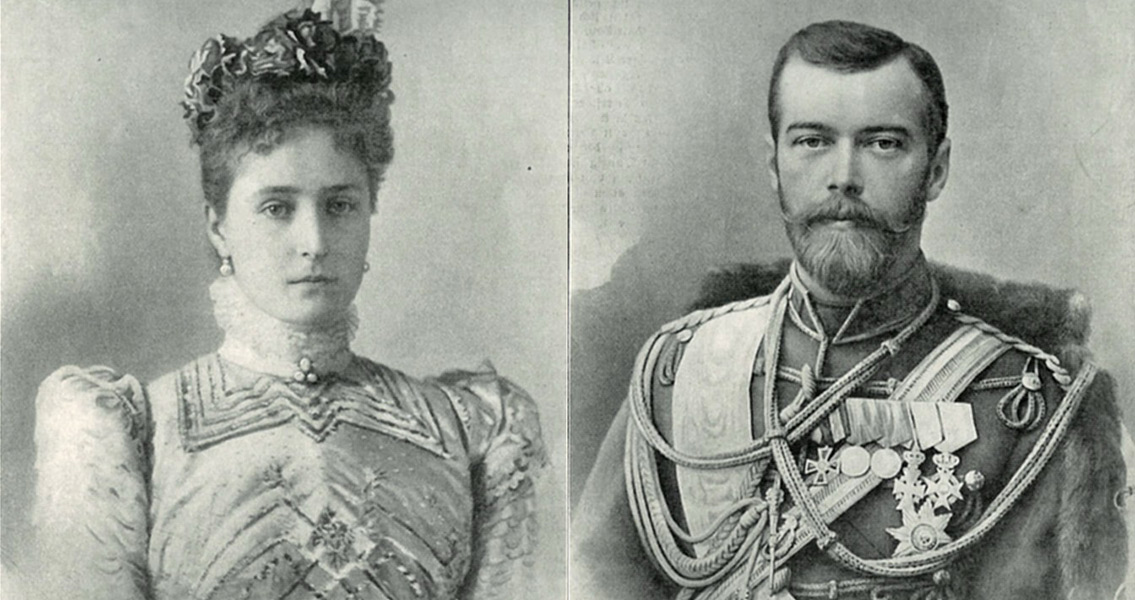<![CDATA[On 18th May, 1868, the last Tsar of Russia, Nicholas II, was born near St. Petersburg. Nicholas' reign would go on to witness some of the most significant moments in Russian history: the Russo-Japanese War, the 1905 Revolution, the First World War and ultimately, the Revolution of 1917 which saw the abolition of the monarchy and Russia's transition to Bolshevism. The eldest son of Aleksandr Aleksandrovich, Nicholas became heir to the throne following Aleksandr's coronation as Tsar Aleksandr III in 1881. He succeeded his father in 1894, and was crowned Tsar in Moscow on 26th May, 1896. Accounts of Nicholas' personality often suggest that he was a talented military officer and avid lover of physical activities. In terms of an interest in politics however, there is little evidence to suggest that Nicholas had much aptitude or interest in the role given to him from birth. Similarly, he was a timid, private person who preferred to spend time with his immediate family. This contributed to a sense of distance between Nicholas and his subjects. Such perceptions of Nicholas' personality, whether accurate or not, came to be hugely significant in forming a pejorative image of the Tsar towards the end of his reign. Another key facet of Nicholas' reign was a perceived weakness of will that allowed him to be easily manipulated by others. His wife, Princess Alexandra of Hesse-Darmstadt, is often described as more politically astute than the Tsar himself. Many argue that at key points in Nicholas' reign she encouraged his autocratic tendencies, something which would eventually back fire spectacularly. It was also Alexandra who encouraged Nicholas to turn to faith healers and spiritual figures to help their son Alexis, who suffered from haemophilia. This ultimately led to their connection to Grigory Yefimovich Rasputin, a Siberian peasant and mystic. Rasputin's ability to improve the condition of the Tsarevich led to him gaining increasing influence in the Russian court, with the royal couple seemingly under his control. From 1905 onward friends and associates of Rasputin received important positions within the Russian government, despite their lack experience in the jobs they had been awarded. On the other hand, Nicholas also demonstrated a disregard for many of his political advisers, especially those who advocated liberalisation of the monarchy. He dismissed attempts by the regional local assemblies to take a greater role in the government of the country, and met growing popular unrest with heavy police repression. Increasingly, Nicholas seemed detached from the needs of the people, and often seemed to choose advisers who furthered his ignorance of the realities of life for the majority of Russians. In the early twentieth century, a crucial series of events ultimately brought about the end of the Russian monarchy. The Tsar's poor decision making in these situations was a major cause of his downfall. One could argue that the revolution in Russia was the inevitable march of history, and had its origins in the years before Nicholas came to power, but the situation was undoubtedly worsened by his incompetence and complete detachment from the needs of the Russian people. Ill-advised attempts at colonial expansion into Manchuria led to a war with Japan. The conflict ended in catastrophic defeat for Russia in 1905, triggering riots and protests. This culminated in Bloody Sunday in 1905, when Russian soldiers opened fire on an unarmed crowd of protesters. Referred to as the 1905 Revolution, opposition to the Tsar grew, and Nicholas was ultimately pressured into reforms, installing a constitution and establishing a parliament (Duma). In 1914, Russia entered the First World War, and a similar pattern to the Russo-Japanese War unfolded. Although military involvement was initially popular due to the strong alliance with Britain and France, and long held fears in Russia that Germany intended to erode into the country's empire, Nicholas decided to take personal control of the Russian military. As the war wore on, the Russian military was exposed as horribly under equipped, poorly prepared and technologically behind its enemies. As the head of the army, Nicholas' autocratic approach had left him with no scapegoats, he was held responsible for all of Russia's defeats. Russia's disastrous experience in the First World War proved the nail in the coffin of Nicholas II's government, with growing popular unrest ultimately exploding in the Russian Revolution. Nicholas abdicated in March 1917, and he and his whole family were executed in 1918. Nicholas had succeeded to the Russian throne at a perilous point in the history of the country's monarchy. Nevertheless, the nature of his rule undoubtedly also played a key role in the eventual destruction of monarchy in Russia. ]]>
Future Tsar Nicholas II Born in Russia
